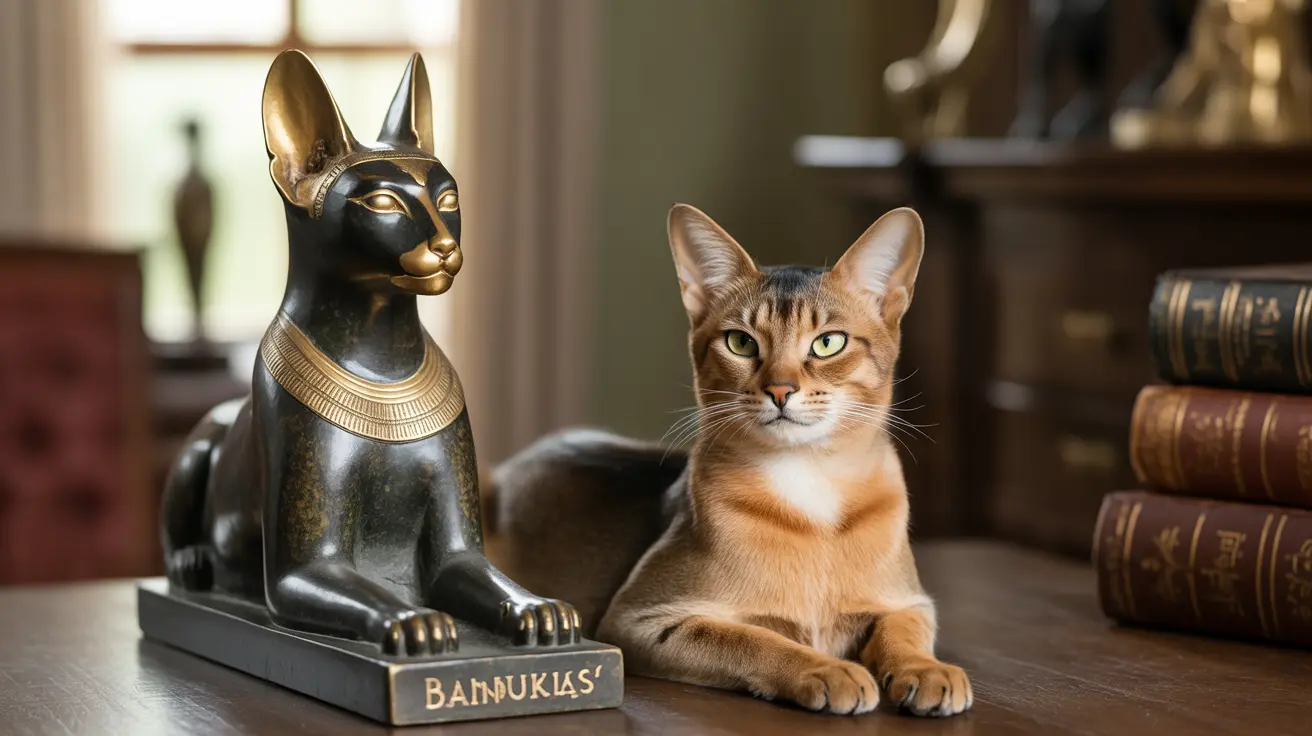Throughout history, cats have held a special place in human civilization, from being worshipped as deities in ancient Egypt to serving as cherished companions in royal courts. Choosing a historical name for your cat not only pays homage to this rich legacy but also imbues your pet with a sense of dignity and character that reflects their unique personality.
Whether you're drawn to the grandeur of ancient Rome, the mystique of Egyptian mythology, or the wisdom of Greek philosophy, there's a historical name perfect for your feline friend. Let's explore some of the most compelling historical cat names and their fascinating origins.
Ancient Egyptian Cat Names and Their Sacred Origins
The ancient Egyptians revered cats as divine creatures, making Egyptian names particularly meaningful choices for modern felines. Bastet, the cat-headed goddess of protection and pleasure, remains one of the most popular historical cat names, perfectly suited for a regal female cat.
Other powerful Egyptian options include:
- Ramses (after the great pharaoh)
- Nefertiti (meaning "the beautiful one has come")
- Isis (goddess of motherhood and magic)
- Thoth (god of wisdom)
Greek and Roman Legendary Names
The classical world offers a treasure trove of powerful and meaningful names. Greek mythology provides names like Apollo, perfect for a golden-colored cat, or Artemis, ideal for a skilled hunter. Roman history gives us names like Augustus for a dignified male cat or Livia for an elegant female.
Popular classical choices include:
- Zeus (king of the gods)
- Athena (goddess of wisdom)
- Caesar (for a commanding presence)
- Perseus (legendary hero)
Medieval and Renaissance Historical Names
The Middle Ages and Renaissance period offer romantic and noble naming options. Consider Galileo for an observant cat, or Leonardo for an especially clever one. Medieval queens like Eleanor or Isabella can inspire names for sophisticated female cats.
Choosing the Perfect Historical Name
When selecting a historical name for your cat, consider these factors:
- Your cat's personality traits
- Physical characteristics that match historical figures
- The name's pronunciation and practical use
- The historical figure's legacy and meaning
Cultural Significance and Modern Appeal
Historical cat names carry weight and meaning that can influence how others perceive your pet. A cat named Cleopatra might be expected to display grace and regality, while one named Spartacus might be seen as brave and independent.
Many of these names have stood the test of time because they:
- Convey strength and character
- Carry interesting stories and meanings
- Create immediate associations with admirable qualities
- Offer conversation starters about history
Frequently Asked Questions
How do I choose a historical cat name that fits my pet's personality and appearance?
Observe your cat's behavior and physical characteristics, then research historical figures who share similar traits. For example, a wise and patient cat might suit the name Socrates, while a playful and mischievous one might be better suited to Loki.
What are some popular historical cat names inspired by ancient Roman and Greek figures?
Popular Greco-Roman names include Apollo, Athena, Zeus, Caesar, Hercules, and Diana. These names are particularly fitting for cats with strong personalities or regal bearing.
Can using historical or mythological names affect how I perceive my cat's behavior or personality?
Yes, naming can influence our perceptions. Giving your cat a historical name might lead you to notice characteristics associated with that historical figure, enhancing your appreciation of your pet's unique traits.
How can I ensure cultural sensitivity when choosing historical cat names with complex or negative associations?
Research the historical figure's complete story and consider any potentially controversial aspects. Avoid names associated with particularly notorious or divisive historical figures, and be mindful of cultural appropriation.
What are some unique and lesser-known historical cat names from different cultures, such as Egyptian or biblical figures?
Consider names like Maat (Egyptian goddess of truth), Nedjem (meaning "sweet one" in ancient Egyptian), Esther (biblical queen), or Theodora (Byzantine empress). These names offer unique alternatives to more common historical choices.
Conclusion
Choosing a historical name for your cat is an opportunity to connect with the past while giving your pet a distinctive identity. Whether you choose an ancient Egyptian deity, a Greek philosopher, or a medieval monarch, ensure the name resonates with both you and your cat's personality.






